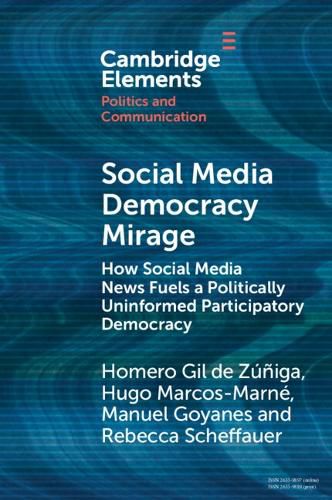Readings Newsletter
Become a Readings Member to make your shopping experience even easier.
Sign in or sign up for free!
You’re not far away from qualifying for FREE standard shipping within Australia
You’ve qualified for FREE standard shipping within Australia
The cart is loading…






For over two decades, political communication research has hailed the potentially reinvigorating effect of social media on democracy. Social media was expected to provide new opportunities for people to learn about politics and public affairs, and to participate politically. Building on two systematic literature reviews on social media, and its effects on political participation and knowledge (2000-2020), and introducing empirical evidence drawing on four original US survey data that expands for over a decade (2009-2020), this Element contends that social media has only partially fulfilled this tenet, producing a Social Media Democracy Mirage. That is, social media have led to a socio-political paradox in which people are more participatory than ever, yet not necessarily more informed.
$9.00 standard shipping within Australia
FREE standard shipping within Australia for orders over $100.00
Express & International shipping calculated at checkout
For over two decades, political communication research has hailed the potentially reinvigorating effect of social media on democracy. Social media was expected to provide new opportunities for people to learn about politics and public affairs, and to participate politically. Building on two systematic literature reviews on social media, and its effects on political participation and knowledge (2000-2020), and introducing empirical evidence drawing on four original US survey data that expands for over a decade (2009-2020), this Element contends that social media has only partially fulfilled this tenet, producing a Social Media Democracy Mirage. That is, social media have led to a socio-political paradox in which people are more participatory than ever, yet not necessarily more informed.